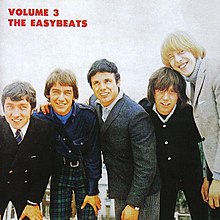
The Easybeats were an Australian rock band that formed in Sydney in late 1964. They enjoyed a level of success that in Australia rivalled The Beatles. They became the first Australian rock act to score an international hit, with the 1966 single "Friday on My Mind", as well as one of the few in Australia to foreground their original material.

Johannes Hendrikus Jacob van den Berg, better known as his stage name Harry Vanda, is a Dutch Australian musician, songwriter and record producer. He is best known as lead guitarist of the 1960s Australian rock band the Easybeats who with fellow member George Young formed the 1970s and 1980s songwriting and record production duo Vanda & Young.

George Redburn Young was an Australian musician, songwriter and record producer. He was a founding member of the bands the Easybeats and Flash and the Pan, and was one-half of the songwriting and production duo Vanda & Young with his long-time musical collaborator Harry Vanda.
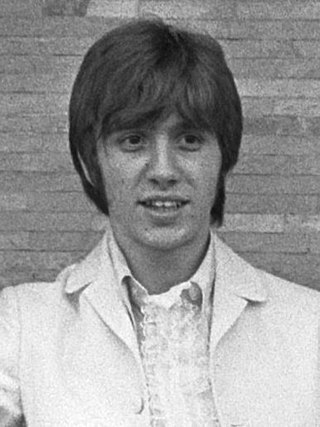
Stephen Carlton Wright was an Australian singer, songwriter, and musician. Called Australia's first international pop star, he is best known for being the lead singer of the Easybeats, who are widely regarded as the greatest Australian pop band of the 1960s.
Flash and the Pan were an Australian new wave musical group formed in 1976 by Harry Vanda and George Young, both former members of the Easybeats, who formed a production and songwriting team known as Vanda & Young. The group's first chart success was their 1976 debut single, "Hey, St. Peter", which reached number five in the Australian Kent Music Report Singles Chart. The next single, "Down Among the Dead Men", peaked at number four in Australia in 1978. For international release, it was re-titled "And the Band Played On".

Albert Productions, a division of music publishing and recording company Albert Music, is one of Australia's longest established independent record labels to specialise in rock and roll music. The label was founded in 1963 by Ted Albert, whose family owned and operated the Sydney music publishing house J. Albert & Son.

Easy is the debut studio album by the Australian rock band the Easybeats, released on 23 September 1965.

It's 2 Easy is the second studio album by Australian rock band the Easybeats. Released on 24 March 1966, the album featured four hit singles; "Wedding Ring", "Sad and Lonely and Blue", "Women " and "Come And See Her".

The Best of The Easybeats + Pretty Girl is the first compilation album by The Easybeats featuring a selection of songs recorded by the group between 1965 and 1966. The album was originally released in Australia and New Zealand under the Parlophone label under the then current licensing arrangement by the band's production company Albert Productions.

Vigil is the fifth studio album by Australian rock band The Easybeats, released in May 1968. This would be the second and final album by the band released on the United Artists Records label.
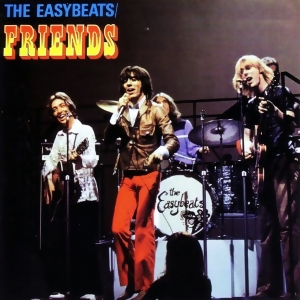
Friends is the sixth and final studio album by Australian rock band the Easybeats. It was released in early 1970 as part of the group's new recording contract with Polydor Records. It would be the only album Polydor released of the band as they broke up before its release.

Vanda & Young were an Australian songwriting and producing duo composed of Harry Vanda and George Young. They performed as members of 1960s Australian rock group the Easybeats where Vanda was their lead guitarist and backing singer and Young was their rhythm guitarist and backing singer. Vanda & Young co-wrote most of the Easybeats' later hits including their international hit "Friday on My Mind" and they were the record producers for the group from 1967. Young was the older brother of Malcolm and Angus Young of the hard rock band AC/DC and also the record producer behind several of the band's biggest albums. The "Guitar George" and "Harry" who are mentioned in the Dire Straits hit song "Sultans of Swing" are George Young and Harry Vanda.
Edward Frank Albert was an Australian early pi inoneer independent record production and founder of Albert Productions. In recognition of his contribution to the music industry, the Australasian Performing Right Association established the annual "Ted Albert Award for Outstanding Services to Australian Music".
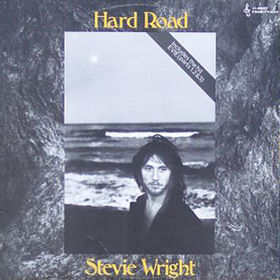
Hard Road is the debut solo album from Australian singer Stevie Wright. The album's first single "Evie " was hugely successful and the title track was later covered on Rod Stewart's 1974 album Smiler. The album itself reach #2 on the Australian albums charts in 1974 was the 16th highest selling album in Australia that year. The compact disc is currently out-of-print and has become quite rare. A digital edition was available on iTunes as of June, 2014.
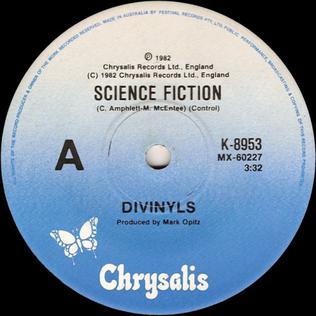
"Science Fiction" is a song by Australian rock/new wave group Divinyls, which was the lead single from their first studio album Desperate. Released in December 1982, "Science Fiction", peaked at No. 13 on the Australian Kent Music Report Singles Chart. The B-side, "I'll Make You Happy" is a cover of The Easybeats 1966 hit.

Good Friday is the fourth studio album by The Easybeats, released in May 1967. It was the first album released after the band signed an international recording deal with United Artists Records. The original UK album was released in May 1967. Although "Friday on My Mind" was a big single in the UK, the album failed to make the top 40.

"The Music Goes 'Round My Head" is a 1967 song and single by Australian rock group The Easybeats, which was written by band members George Young and Harry Vanda.

"For My Woman" is a song by Australian rock band the Easybeats, written by singer Stevie Wright and guitarist George Young. The Easybeats had formed in Sydney in 1964, quickly garnering a following in clubs, with a sound inspired by the Pretty Things and the Rolling Stones. After signing with their manager Mike Vaughan, he introduced the band to producer and businessman Ted Albert, who liked the band enough to sign them to his company Albert Productions in December 1964. The song was recorded in January 1965 at the 2UW theatre in Sydney as a demo together with three other songs.

"Come and See Her" is a song written by Stevie Wright and George Young. It was released as the sixth single for their Australian rock group the Easybeats in April 1966, which reached No. 3 on the Australian charts. It was the group's debut single in the United Kingdom, issued on the United Artists Records in July.
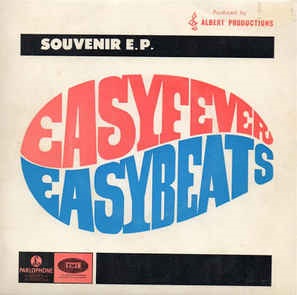
Easyfever by Australian rock and roll group the Easybeats was their fourth official extended play. It was issued to coincide with the band's departure for the United Kingdom. It appeared in August 1966 and reached number one on the Australian singles charts, something that had only been achieved once before by an EP. The songs on the EP did not appear on any of the Easybeats' official studio albums, however, they were included as bonus tracks on the 1992 CD reissue of their It's 2 Easy album.
